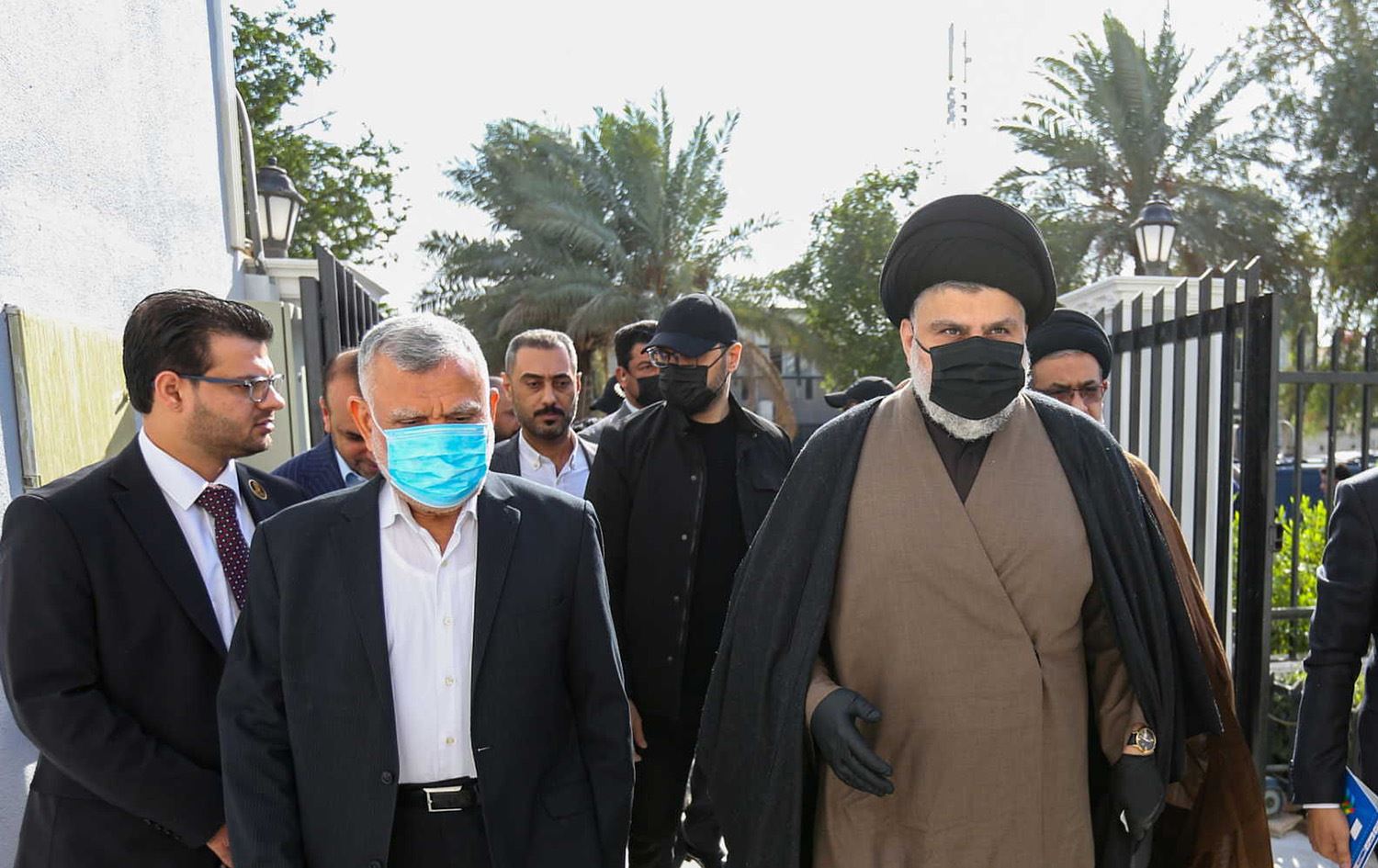After Al-Sadr withdrawal from Parliament in June 2022, the Shiite coordination framework acted as if their prominent opponent had surrendered and left the ground for them. After that, they nominated Mohammed Shia Al-Sudani, whom Al-Sadr had vetoed during the October 2020 demonstrations, and this angered Al-Sadr, and then his demonstrators arrived at the Parliament.
For Al-Sadr, any progress of the Shiite framework in the political process in the absence of his movement constitutes a major threat to the future of Sadr’s political project. According to previous experiences, much influence in Iraq is achieved through sharing power and filling the joints of the state and not by turning into an opposition. While his still under the impact of the obstacles that he faced from the government of the “national majority” and the nomination of Jaafar Al-Sadr, he is now taking revenge by blocking the plans of the Shiite coordination framework.
Most likely, the new coordination framework government will resort to the electoral law that was already recommended by the Federal Court to amend it, which may prevent the Sadrists from becoming the first in Shiite circles again. This is critically important for the Sadrist movement because, in the fourth session, the Sadrist movement worked frequently on the election law, the division of districts, and the formation of the commission. Undoubtedly, amending the law in the absence of the Sadrist Movement will not be in the interest of Al-Sadr. This is one of the most hidden conflicts between Al-Sadr and the coordination framework.
The Sadrist movement cannot tolerate their opponents by forming a government and waiting on the bench until the legal date for elections in 2025. They have no choice but to impose a transitional period that shortens the wait to a year or more, to regain strength and promote new speeches.
Mohammed Shiaa Al-Sudani is considered a shadow of Al-Maliki. However, after his nomination by the coordinating framework, while Al-Maliki was still suffering from his leaked audio recordings, Asa’ib began its government formation campaign and announced the conditions for selecting ministers. Meanwhile, Khazali said that “Breathes of Al-Zahra” was present at the Sudani’s nomination meeting, which raises doubly concern for the Sadrists because they are from a separatist wing. Al-Sadr had repeatedly said that
"Those who ride on our shoulders and then leave are corrupted"
Muqtada Al Sadr
On the other hand, both sides are fighting over the legacy of Muhammad Sadiq Al-Sadr and now they want to take the sacred and religious tales. Simultaneously, the Sadrists consider Asa’ib to be illegitimate, backward, and traitors.
By filling Al-Sadr’s seats and appointing a candidate for prime minister, the coordination framework took a step forward against Al-Sadr, but, in turn, Sadr responded by occupying the Green Zone and Parliament. Instantly the two sides are flailing their arms about being able to continue the protests and operate their leverage against each other.
Al-Sadr has proven all opinions that without him no political game in Iraq will succeed, but there is so much ambiguity in his demands, and raising the level of these demands has eliminated the possibility of reaching an agreement. In response, the coordination framework tried to use the street, and this is what puts the Shiites in danger of conflict and conflict. So they had to get it over with quickly and somehow they emitted a strong signal that they wouldn’t give up easily.
Shortly, there is no moderate solution to the issues between Al-Sadr and his Shiite opponents. However, the possibility of a Shiite civil war is very rare, as it is equivalent to losing Iran and loosening the Shiite grip on Iraqi rule. Moreover, they are all responsible for what the Iraqi state is undergoing these days and understand that the civil war will burn everyone, and this matter is excluded by the presence of Shitte Supreme Religious Authorities. This is in addition to the external influences related to the situation in Iraq.
There are some solutions to the current Shiite crisis, and they all seem to shorten the fifth term in order not to marginalize the Sadrists. However, Al-Sadr’s demands to reverse the process are very difficult and the last attempt to be the decision maker in Iraq ended with the fall of a third of Iraq by ISIS, and anyone else who tries the same may It leads to disaster because there is no Shiite force or party that has a sufficient majority to impose their sovereignty.



